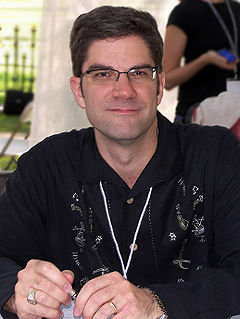A Quote by Ruth Rendell
I try, and I think I succeed, in making my readers feel pity for my psychopaths, because I do.
Related Quotes
Every word I say has chains round its ankles; every thought I think is weighted with heavy weights. Since I was born, hasn't every word I've said, every thought I've thought, everything I've done, been tied up, weighted, chained? And mind you, I know that with all this I don't succeed. Or I succeed in flashes only too damned well. ...But think how hard I try and how seldom I dare. Think - and have a bit of pity. That is, if you ever think, you apes, which I doubt.
Self-pity is the bestiality of emotions: it absolutely disgusts people. When you're feeling pity for yourself, and somebody says to you 'You think maybe it's time for the pity party to be over? You should stop feeling sorry for yourself and try to think positive,' it makes you wish you could saw their head off.
I feel that historical novelists owe it to our readers to try to be as historically accurate as we can with the known facts. Obviously, we have to fill in the blanks. And then in the final analysis, we're drawing upon our own imaginations. But I think that readers need to be able to trust an author.
What a pity that Bilbo did not stab that vile creature, when he had a chance!' Pity? It was Pity that stayed his hand. Pity, and Mercy: not to strike without need. And he has been well rewarded, Frodo. Be sure that he took so little hurt from the evil, and escaped in the end, because he began his ownership of the Ring so. With Pity.
Pity is for this life, pity is the worm inside the meat, pity is the meat, pity is the shaking pencil, pity is the shaking voice-- not enough money, not enough love--pity for all of us--it is our grace, walking down the ramp or on the moving sidewalk, sitting in a chair, reading the paper, pity, turning a leaf to the light, arranging a thorn.





































